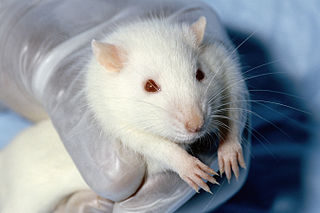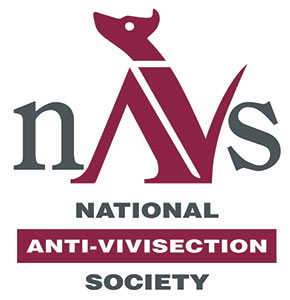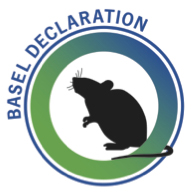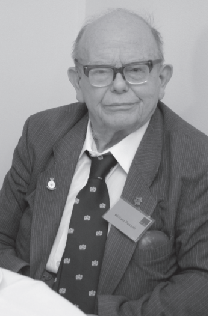
Animal testing, also known as animal experimentation, animal research, and in vivo testing, is the use of non-human animals in experiments that seek to control the variables that affect the behavior or biological system under study. This approach can be contrasted with field studies in which animals are observed in their natural environments or habitats. Experimental research with animals is usually conducted in universities, medical schools, pharmaceutical companies, defense establishments, and commercial facilities that provide animal-testing services to the industry. The focus of animal testing varies on a continuum from pure research, focusing on developing fundamental knowledge of an organism, to applied research, which may focus on answering some questions of great practical importance, such as finding a cure for a disease. Examples of applied research include testing disease treatments, breeding, defense research, and toxicology, including cosmetics testing. In education, animal testing is sometimes a component of biology or psychology courses. The practice is regulated to varying degrees in different countries.

GSK plc is a British multinational pharmaceutical and biotechnology company with global headquarters in London. Established in 2000 by a merger of Glaxo Wellcome and SmithKline Beecham, GSK is the tenth largest pharmaceutical company and #294 on the 2022 Fortune Global 500, ranked behind other pharmaceutical companies China Resources, Sinopharm, Johnson & Johnson, Pfizer, Roche, AbbVie, Novartis, Bayer, and Merck Sharp & Dohme.

Leslie Arnold Turnberg, Baron Turnberg,, is a British medical professional and an author of many publications and books related to the medical and health services fields. His experience extends to areas of research in these fields, and maintaining a clinical practice. He has published four books and some 150 articles on medical and scientific research. He has written two books on the history of Israel: Beyond the Balfour Declaration; the 100 Year Quest for Israeli-Palestinian Peace was published in 2017, and Mandate: Britain's Palestinian Burden, 1919–1939 was published in 2021.
Simon Festing is operations director of the CIBSE.

Laboratory animal suppliers in the United Kingdom breed animals such as rodents, rabbits, dogs, cats and primates which they sell to licensed establishments for scientific experimentation. Many have found themselves at the centre of animal rights protests against animal testing.

Pro-Test was a British group that promoted and supported animal testing in medical research. It was founded on 29 January 2006 to counter SPEAK, an animal-rights campaign opposing the construction by Oxford University of a biomedical and animal-research facility, which SPEAK believes may include a primate-testing centre. Pro-Test held its first rally on 25 February 2006, attracting hundreds in support of the research facility and opposed by a smaller number of anti-lab demonstrators.
The Animal Procedures Committee advised the British Home Secretary on matters related to animal testing in the UK. The function of the committee was made a statutory requirement by the Animals Act 1986, which mandated that it should have at least 12 members, excluding the chair. The APC no longer exists as the ASPA has been revised in accordance with EU legislation. It was disbanded on 31 December 2012 and was replaced by the Animals in Science Committee in 2013.
Gillian Rose Langley is a British scientist and writer who specialises in alternatives to animal testing and animal rights. She was, from 1981 until 2009, the science director of the Dr Hadwen Trust for Humane Research, a medical research charity developing non-animal research techniques. She was an anti-vivisection member of the British government's Animal Procedures Committee for eight years, and has worked as a consultant on non-animal techniques for the European Commission, and for animal protection organizations in Europe and the United States. Between 2010 and 2016 she was a consultant for Humane Society International.

The National Anti-Vivisection Society (NAVS) is an international not-for-profit animal protection group, based in London, working to end animal testing, and focused on the replacement of animals in research with advanced, scientific techniques. Since 2006, the NAVS has operated its international campaigns under the working name Animal Defenders International (ADI), and the two groups now work together under the ADI name.

Experiments involving non-human primates (NHPs) include toxicity testing for medical and non-medical substances; studies of infectious disease, such as HIV and hepatitis; neurological studies; behavior and cognition; reproduction; genetics; and xenotransplantation. Around 65,000 NHPs are used every year in the United States, and around 7,000 across the European Union. Most are purpose-bred, while some are caught in the wild.

Alternatives to animal testing are the development and implementation of test methods that avoid the use of live animals.

The Boyd Group is a Britain-based, independent think tank considering issues relating to animal testing.
Michael Balls is a British zoologist and professor emeritus of medical cell biology at the University of Nottingham. He is best known for his work on laboratory animal welfare and alternatives to animal testing.

Animal testing regulations are guidelines that permit and control the use of non-human animals for scientific experimentation. They vary greatly around the world, but most governments aim to control the number of times individual animals may be used; the overall numbers used; and the degree of pain that may be inflicted without anesthetic.

Tatsuji Nomura was a pioneer in the development of laboratory animals with the aim of assuring reproducibility of experimental results in medical research. He was Director of the Central Institute for Experimental Animals (CIEA), Japan

Understanding Animal Research (UAR) is a British membership organisation formed in late 2008 through the merger of the Research Defence Society and the Coalition for Medical Progress. Its main aims are to "explain why animals are used in medical and scientific research. We aim to achieve a broad understanding of the humane use of animals in medical, veterinary, scientific and environmental research in the UK".
Fund for the Replacement of Animals in Medical Experiments (FRAME) is a charity based in Nottingham, UK. FRAME funds and promotes alternatives to animal testing.

The Basel Declaration is a call for greater transparency and communication on the use of animals in research. It is supported by an international scientific non profit society, the Basel Declaration Society, a forum of scientists established to foster the greatest dissemination and acceptance of the Declaration, and the dialogue with the public and stakeholders.

The Three Rs (3Rs) are guiding principles for more ethical use of animals in product testing and scientific research. They were first described by W. M. S. Russell and R. L. Burch in 1959. The 3Rs are:
- Replacement:methods which avoid or replace the use of animals in research
- Reduction: use of methods that enable researchers to obtain comparable levels of information from fewer animals, or to obtain more information from the same number of animals.
- Refinement: use of methods that alleviate or minimize potential pain, suffering or distress, and enhance animal welfare for the animals used.

William Moy Stratton Russell, also known as Bill Russell, was a British zoologist and animal welfare worker. He was best known for writing, along with R. L. Burch (1926-1996) The Principles of Humane Experimental Technique (1959), a landmark in the humane use of animals in research, education and testing. Russell and Burch introduced the concept of the Three Rs in the scientific community and provided a blueprint for combining animal welfare considerations and quality of research.










